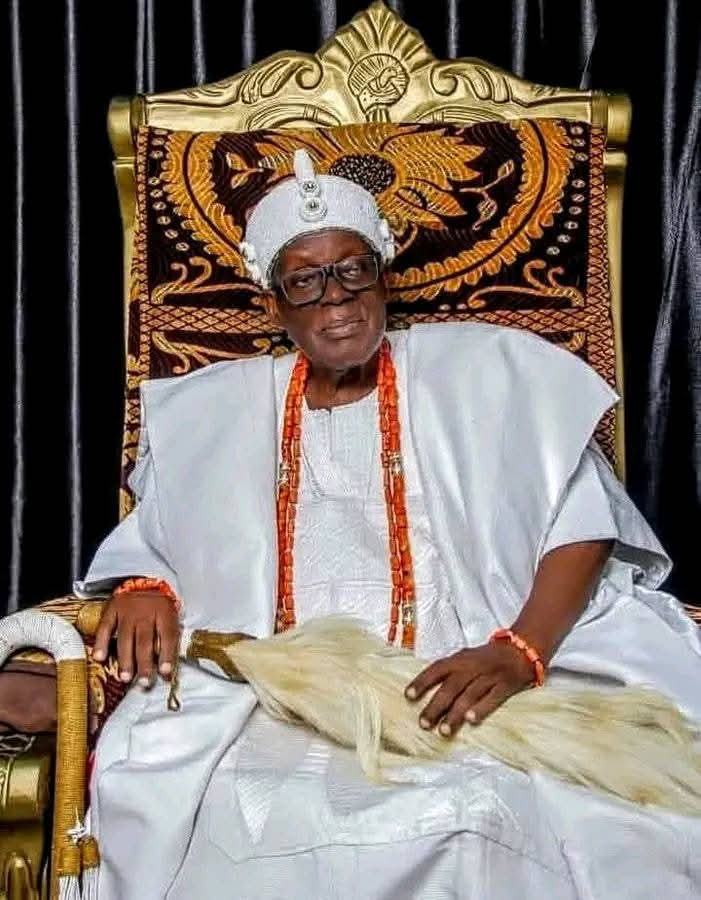When this writer and the likes of Professor Pat Utomi, Sahara desert explorer Newton Jibunoh, Wasiu Ayinde Marshal (KWAM 1) and Lagbaja were named Lagos State Ambassadors for Environment in 2009, then Governor Tunde Fashola was trenchant in his expectation: deploy your individual talent and platform to help create awareness for the sustainability of the environment in a world ensnared by climate change.
As we left the inauguration ceremony that day, I doubt if anyone of us harboured the illusion that what lay ahead was a glamour ride. I am sure most left with a sobering feeling that it was a crusade with an ambitious mission – seeking to alter behavior at the cultural realm.
While then making allowance for some distractions – if not resistance – along the way, nothing could have prepared anyone for the recent abrupt reversal of progress thought already made with the resurgence of garbage on Lagos highways, beginning from the last Yuletide season. As giant flies and rodents feasted away, so have vultures been encircling the Lagos skyline ominously.
The easy conjecture is to scapegoat the new waste manager, Visionscape, for this. In retrospect, it must be admitted that the meltdown would probably have been mitigated, if not totally avoided, had Visionscape phased its intervention in pilot schemes, learning and fine-tuning things along the way before scaling up.
By the terms of the original transition arrangement, the new concessionaire was expected to concentrate on residential neighborhoods while the existing PSP operators were to manage commercial and industrial avenues. (The former accounts for 40 percent of the waste generated while the latter produces the rest.)
But having said that, holding Visionscape solely responsible for the resurgent mountains of garbage along the highways will amount to a poor reading of the dark forces actually at play. Let it be recognized that the garbage heaps are only a manifestation of a vicious power-play going on.
Entrenched interests are certainly up in arms against a bold attempt by the Akinwumni Ambode administration to fast-track reforms in a sector that otherwise impacts the daily existence of over 20 million residents.
They are to be located between the PSP cartel, the nest of unscrupulous civil servants and maybe the rank of those who lost out in the bid process. (Some of the biggest names in international environmental management such as Veolia, Averda and Suez Environment had expressed interest through strategic partnerships with local partners in the tender process.)
Of course, experience readily shows that beneficiaries of any pre-existing order are never willing to forfeit privileges or go down without a fight.
Like sharks, the PSP operators chose to sink their fangs where it hurts most.
Knowing the bulk of the fleet of compactors ordered by the new concessionaire were still in transit, they not only downed tools but also rushed to the court to file suits against the authorities and Visionscape. Without having a full complement of equipment needed to effectively cover Lagos at that point, it was only natural Visionscape would encounter acute operational difficulties.
The lesson: the old structure that had served the city need not have been pulled down in one fell swoop overnight. At least, that would have afforded the powerful PSP cartel enough cool-off time.
Authorities believe the barrage of attack is the handiwork of beneficiaries of the old order. Well, that should be expected. Only a fortnight ago, the state government had paraded a PSP operator allegedly caught willfully discharging garbage on the highway at night. Of course, the motive could only be to cast Visionscape in bad light.
Anyone still in doubt as per the length such interests could go only needs to check and feel the ferocity of a multi-faceted smear campaign waged against Visionscape in the social media in the past two weeks and its promoters being called unprintable names. Haba!
For instance, issue is made of the N50b investment in the undertaking. But those who think that is on the high side could not be said to be mindful of the size of Lagos population.
Elsewhere in Ondo, another waste concessionaire, ZL Global Alliance Nigeria Limited, is shopping for N7b in funds, according to the CEO, Mrs. Abiola Bashorun. Tellingly, whereas Ondo generates 660 tonnes of waste daily with a population of less than 4 million, Lagos generates whopping 13,000 tonnes with a population of over 20 million.
But the brickbats from the ongoing turf war aside, there can be no dispute on the clarity of Ambode’s dream and sense of urgency needed to bring same to fruition. The kernel is to have the over 13,000 tonnes of waste generated daily turned into value-creation, consistent with the vision of a smart city.
Surely, filthy beaches and slimy waterways have no place in the megacity of the future.
Indeed, waste management is not limited to residential neighborhoods alone. Even more daunting is the challenge of industrial waste. As more corporate citizens are born so is the risk of industrial pollution rising. A more robust regulatory and monitoring framework is surely needed to check the growing menace of unscrupulous manufacturers offloading toxic effluent into the waters indiscriminately. To say nothing about the hazards also posed by medical waste.
Overall, the new thinking in sustainable environment management is such that integrates three key pillars: people, planet and profit. It means how we consume energy and conserve our environment impact directly on the economic health of the city which, in turn, dictate the quality of life we live.
Of course, it has to be admitted that Lagos still lags behinds in terms of infrastructure to make this happen. The itinerant cart-pusher (Omolanke) of old was also a scavenger and a scourge. He eked a living from the garbage collected around the neighbour. And when no one was watching, he found somewhere to empty the filth amassed. The next day, the cycle was repeated.
After the law banished the cart-pusher, PSP operators flooded the neighborhoods and the highways. Hundreds of them were licensed and paid to collect waste. Since government money was involved, the system soon got infected with some hanky-panky.
For instance, stories are told of how the cartel in concert with some unscrupulous civil servants began to game the system mindlessly.
Some would load big stones in their trucks and submit same for the tonnage to be weighed for payment. While Tunji Bello (now SSG) was still Environment Commissioner, that trick was foiled. Ownership of a compactor was thereafter made a pre-requisite.
Before long, the buccaneers invented another trick: recycling. So, Operator A would, for instance, line up their fleet for official inspection and operation on Monday, Wednesday and Friday. Same mostly rickety vehicles were passed on to Operator B who would bring them out on Tuesday, Thursday and Saturday.
In effect, whereas two such players were listed and remunerated based on combined capacities of six trucks, the truth: only half of that actually existed.
It was in an attempt to curb such sharp practices and infuse a fresh breath of air that Ambode, soon after assuming office, decided to turn the table. So, enter Visionscape.
Regardless of the shortcomings at take-off, there is no denying the fact that effective waste management of the future in Lagos requires a big player like Visionscape expected to leverage its international partnerships to deliver a more livable and greener habitat for us.
Mischief-makers ought to be told in unmistakable terms to cut it. It is a clarion call for all reasonable people to join in the efforts to better our environment.
Visionscape is expected to also provide an engineered sanitary landfill; upgrade and manage three transfer loading stations at Oshodi, Simpson and Agege as well as upgrade and manage waste depots at Ogudu, Mushin and Tapa.
Driving along the Lekki highway the other day, one saw the upgrading works being done on the dumpsite at the Epe end. Beyond the remodeling, the one at Olusosun in Ojota should also be made to be more functional. As a matter of fact, part of the bargain is for Visionscape to provide alternatives to the Ojota dumpsite, a perennial source of noxious fumes and pungent stench for residents of that axis.
Having surmounted the teething problems following the receipt of more operational equipment, we can only hope the concessionaire deliver promptly on the ancillary promises in due course. It is nice to see that, in conformity with United Nation guidelines for a humane and coordinated approach, some of the cart-pushers and the scavengers on dumpsites have been recruited and trained as landfill mining teams.
Added to that is the 30,000 Community Sanitation Workers to be recruited under the Cleaner Lagos Initiative.
We also look forward to seeing the much touted strategic partnership with recycling companies in action as part of the value chain.





